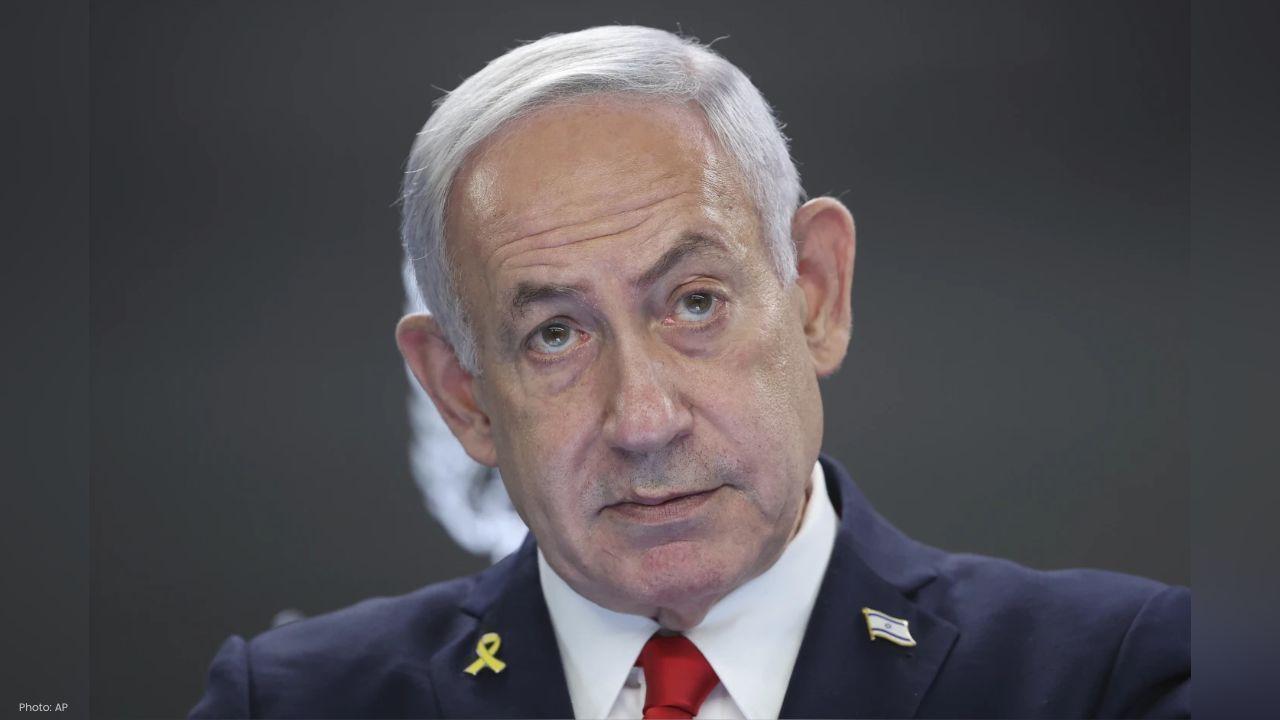
Post by : Mariam Al-Faris
Israeli Prime Minister Benjamin Netanyahu recently took a major risk in his ongoing war against Hamas. He ordered an airstrike in Qatar that was meant to kill top Hamas leaders living in exile. Netanyahu hoped that such an attack would weaken Hamas, bring him closer to what he calls “total victory,” and pressure the group into surrendering after nearly two years of war in Gaza.
The Strike In Qatar
The airstrike targeted a meeting in Qatar where Hamas leaders were discussing a new ceasefire proposal presented by the United States. Israel claimed the attack was a chance to wipe out Hamas’ senior leadership in one blow. The strike killed five low-level Hamas members and a Qatari security officer. However, Hamas later announced that its senior leaders survived the attack. Qatar, meanwhile, has not confirmed the condition of the Hamas leaders or released any official details.
Backfire For Netanyahu
The strike has largely backfired for Netanyahu. Instead of weakening Hamas or forcing it to the negotiating table, the attack has angered Qatar and much of the Arab world. Qatar, a key U.S. ally and an important mediator in the Gaza conflict, strongly condemned the attack. The move has also strained Israel’s relations with Washington, further complicating already fragile ceasefire talks.
Damage To Global Image
Netanyahu’s international reputation was already under pressure because of the humanitarian crisis in Gaza. The war has left tens of thousands dead, displaced millions, and destroyed much of Gaza’s infrastructure. The failed assassination attempt in Qatar has further harmed his image, making him appear reckless on the global stage. Analysts say the strike has pushed hopes of a ceasefire even further out of reach and endangered the lives of the 20 hostages still believed to be in Gaza.
Symbolism Of Leadership Killings
Experts say Netanyahu’s goal was not only military but also symbolic. Killing Hamas leaders outside Gaza would have allowed him to claim an “image of victory.” According to Harel Chorev, an Arab affairs expert at Tel Aviv University, Netanyahu wants to be able to say, “We won, we killed them all.” This would give him a political win at home and help justify his continuation of the war.
Hamas Leadership In Gaza
Over the past 23 months, Israel has successfully targeted and eliminated many of Hamas’ top leaders inside Gaza. However, Hamas’ leadership abroad, particularly in places like Qatar and Turkey, has continued to play a strong role in guiding the group. Netanyahu views these leaders as crucial to Hamas’ survival, which is why he authorized the Qatar strike. But with reports that they survived, his plan has not succeeded as intended.
Growing Pressure On Netanyahu
The failure of the Qatar strike adds to Netanyahu’s challenges. His hard-line coalition remains firm in rejecting any ceasefire unless Hamas is completely destroyed. But as “total victory” looks increasingly impossible, Netanyahu faces growing difficulties in justifying his war strategy both at home and abroad. Critics argue that his actions are prolonging the conflict, isolating Israel, and worsening humanitarian suffering.
Strain With Qatar And The U.S.
Qatar has been one of the most important mediators in the war, often acting as a bridge between Hamas, Israel, and the United States. Israel’s decision to strike in Doha has put this mediation role in jeopardy. Washington, which hosts a large military base in Qatar, is also frustrated by Netanyahu’s gamble. The White House fears that the attack could collapse ongoing ceasefire efforts and make hostage negotiations impossible.
Ceasefire Talks At Risk
The strike has thrown ongoing ceasefire talks into disarray. The leaders meeting in Qatar were reportedly discussing a new U.S.-backed proposal aimed at ending the war. By attacking them, Israel may have damaged a rare chance to move forward with negotiations. Analysts warn that this could delay peace talks for months and prolong the suffering of civilians in Gaza.
Netanyahu’s Political Strength At Home
Despite the international backlash, Netanyahu remains politically secure within Israel. His coalition government is dominated by hard-line parties that support continuing the war until Hamas is destroyed. This backing means that Netanyahu faces no immediate political threat, even as his global reputation suffers. His government continues to argue that stopping now would only allow Hamas to rebuild and attack again in the future.
Hostages Still In Danger
Another major concern after the Qatar strike is the fate of the 20 hostages still believed to be alive in Gaza. Families of these hostages worry that the attack has made their rescue even harder. Any breakdown in negotiations could put their lives at greater risk. This has increased criticism of Netanyahu from some quarters, especially from hostage families who feel the government is prioritizing military goals over saving lives.
Arab World Reaction
The Arab world has reacted strongly to the Qatar strike. Many countries see it as a violation of Qatar’s sovereignty and an unnecessary escalation of the war. Regional anger could make it harder for Israel to find support from Arab states in the future. At a time when Israel needs international cooperation, Netanyahu’s actions may be isolating the country further.
No Signs Of Retreat
Despite the backlash, Netanyahu has shown no signs of slowing down. He continues to push forward with the war in Gaza, emphasizing his promise of “total victory.” His government rejects any talk of compromise or partial agreements with Hamas. For Netanyahu, pulling back now would appear as weakness, something he is determined to avoid.
A War Without An End
The situation highlights the deep challenges in ending the Gaza war. Israel’s military campaign has weakened Hamas but not eliminated it. Diplomatic efforts are fragile and face constant setbacks. With Netanyahu doubling down on his approach and Hamas still standing, the path to peace looks longer and more difficult than ever.










Kazakhstan Boosts Oil Supply as Prices Tumble Amid U.S. Storm
Oil prices fell slightly as Kazakhstan resumed production while adverse weather impacted U.S. Gulf C

Madras High Court Halts Jana Nayagan Censor Clearance
The Madras High Court suspends the earlier order allowing censorship clearance for Jana Nayagan, del

MV Trisha Kerstin 3 Incident: 316 Rescued, Ongoing Search Efforts
In a tragic event near Jolo, the MV Trisha Kerstin 3 faced an accident with 316 passengers rescued s

Public Fury Erupts Following Fatal Shootings by ICE Agents
Nationwide protests ensue after two U.S. citizens are killed during ICE operations, prompting celebr

Masdar City Free Zone Crowned Fastest-Growing in the UAE
In 2025, Masdar City Free Zone celebrates three awards, highlighting remarkable growth and robust su

Musetti Triumphs Over Fritz, Sets Up Match Against Djokovic
Lorenzo Musetti outplays Taylor Fritz, moving on to face Djokovic in the quarterfinals with a comman